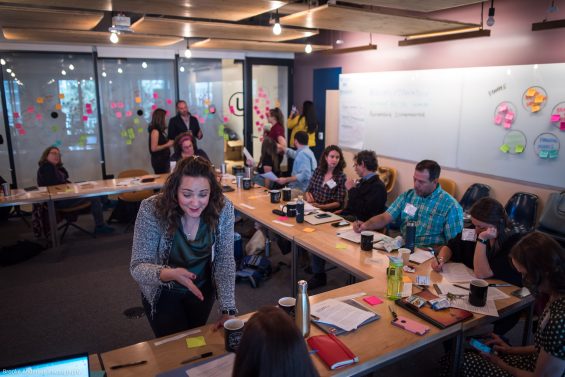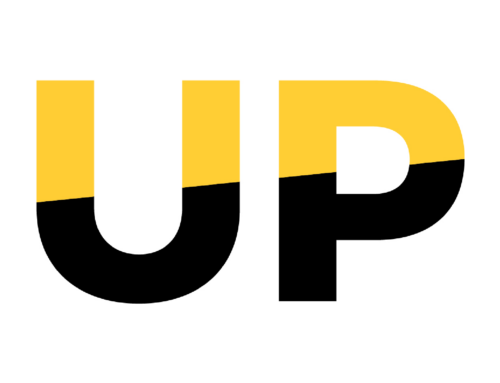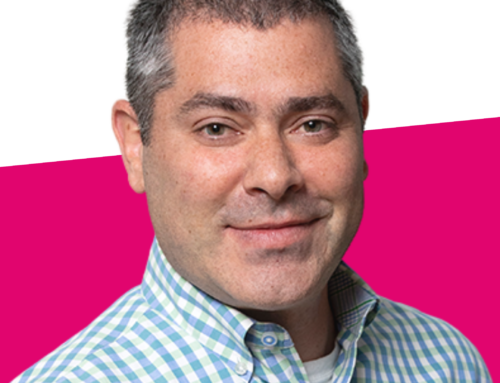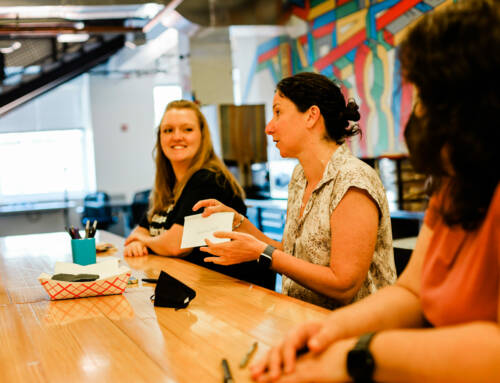
By Sarah Kornhauser, Senior Director, Entrepreneurs & Ventures
As so many aspects of Jewish life change – from summer camps closing to nearly every program moving online – we’re all being asked to adapt in response to emerging realities. But as one UpStart network member said, it’s crucial that we don’t just take what we used to do and then try to “shove it” online. Effective adaptation, also known as a “tactical shift” requires intentionality and experimentation, something we’re seeing a lot of among the 100+ groundbreaking ventures in the UpStart network. We wanted to highlight some of these ventures and their creative tactical shifts, and what to consider as you adapt to the new reality.
Shifting your tactics – how you deliver your programs or services – is necessary for an organization to remain relevant and sustainable. And in the COVID-19 reality, we see the need for even faster shifts. A shift in tactics helps ensure a venture’s offerings remain relevant to the community they serve while still aligning with their overall strategy. At UpStart, we’ve often said that tactical shifts can be large or small, and they should emerge from a clear understanding of what is working and what is not. Using data (e.g., performance metrics, evaluations, and direct observation) to decide whether or not it’s time to make a shift ensures that the change is effective.
Right now, you may not have the luxury of a lot of time or data as the realities of the pandemic set in…but take a step back to see if you have any anecdotal evidence that you’ve been hearing from your constituents; anything you’ve observed in the months since the crisis started; or numbers you might have collected recently for a grant. These can all be data points to guide your decision-making and adaptation.
We’re so inspired by these organizations’ shifts, and there’s a lot we can learn from them. Here’s a small sample:
Leveraging your unique offerings to speak to pressing needs
The background: Sisterhood of Salaam Shalom (Venture Accelerator Cohort 11) is building trust, respect, and relationships between Muslim and Jewish women to put an end to hate. With 150+ chapters across North America, all of their programming is predicated on relationship-building – which usually happens in person.
The tactical shift: When SOSS had to move all their offerings to virtual, they thought intentionally about what their members most needed at this moment. SOSS created a helpline and video conferencing resources for their chapters to support online text study focused on issues like health and caring for the community. With houses of worship closed, they developed ways for members to feel spiritually connected, and their central office is offering new programming online, like meetings for medical personnel or their family members, online dyad meetings for members to meet in an unstructured setting, and shared iftars (shared fasting and break fast during Ramadan) – nourishing their members spiritually and emotionally, and fostering the very relationships that break down negative stereotypes and put an end to hate.
Leaning into – and scaling up – the part of your organization that’s most relevant
The background: Pico Union Project (Venture Accelerator Cohort 10) is a multi-faith cultural arts center and house of worship, which aims to help invigorate the Los Angeles community through activities, event rentals, religious services, concerts, and social actions.
When they initially moved into a historic synagogue in what is now a largely immigrant and Latino neighborhood, they made an intentional choice to support the surrounding community. They created Vida Sana, a bi-monthly distribution of fresh produce and wellness activities for 250 vulnerable families. As they established a local Jewish presence, they wanted to be sensitive to the needs and concerns of their neighbors.
The tactical shift: With the onset of COVID-19, all of their usual activities and rentals have been canceled…but the PUP saw the needs of the most vulnerable in their community and shifted their resources toward meeting that need. They dramatically increased its Vida Sana distribution to twice a week, reaching 2,000 of LA’s most vulnerable families. They are doing this in partnership with Seeds of Hope, The City and County of Los Angeles, and past and new donors to the Pico Union Project.
Reaching beyond the typical audience and lifting up others
The background: Tzedek America (Venture Accelerator Cohort 11) strengthens Jewish identity in young people through immersive social justice experiential education, including alternative spring break trips, and more.
The tactical shift: To inspire teens and others sheltering in place during social distancing, they started a social media campaign with creative ideas for social action. With 12 concrete, easy-to-implement ideas, they’ve reached an audience of over 285,000 people, inspiring 320 shares on Facebook alone, encouraging teens to make a broader impact in their communities. Their team has also been highlighting all of their non-profit partner organizations and encouraging their own base to support others (for example, supporting local organizations who support the people experiencing homelessnes). Inspiring people from afar is a way to keep their community engaged and to continue fulfilling their mission of helping teens understand the social, environmental and economic challenges facing the United States today – but in a new way.
*
As you navigate uncertainty, consider the following three areas, and the accompanying questions to help you navigate these tactical shifts:
- Assess product-market fit. How can you leverage what you know and do best for what people need now? What will you need to let go of to free up capacity for this new direction? Hone in on the essence of what you do and your “special sauce,” and then reassess how your constituents’ needs have changed. Double-down on how to apply your “special sauce” to these new needs. This means you’ll likely have to make hard decisions about saying “no” to new things or slowing down or ending other initiatives.
- Take calculated risks. It might seem counterintuitive to take risks in a time of great uncertainty, but smart risks can lead to breakthroughs. Where are the small and large moments that you can make informed choices towards risk-taking? How are individuals within your organization celebrated internally for their risk-taking, regardless of outcome? This crisis is inherently asking us to do things differently, so the right tactical shift will likely feel risky. If you’re doing something uncomfortable, that’s because we all need to do things differently, and taking risks is one way to see what works.
- Align the financials. As you contemplate potential shifts, be aware of the financial implications. Financial forecasting will help you understand how various program scenarios might impact your bottom line. Funds may need to be repurposed in order to move in new directions. This means communicating with donors and stakeholders and continually assessing a changing marketplace.
*
We’ll always need to be making tactical shifts, as change is – paradoxically – a constant. For further reading on how to make strategic (as opposed to tactical) shifts, check out this piece I wrote about strategic pivots as the “best-kept secret” in Philanthropy News Digest.
Whether you’re completing reconfiguring your programs or making more gradual changes, we hope these stories provide some inspiration, and that these questions provide some food for thought to help you adapt in our rapidly changing world.
Our purpose is to enable entrepreneurs to bring bold Jewish ideas to light. We help them reach Up to people in new ways that are meaningful, more inclusive, and create a brighter future for our Jewish community and the world we share.





